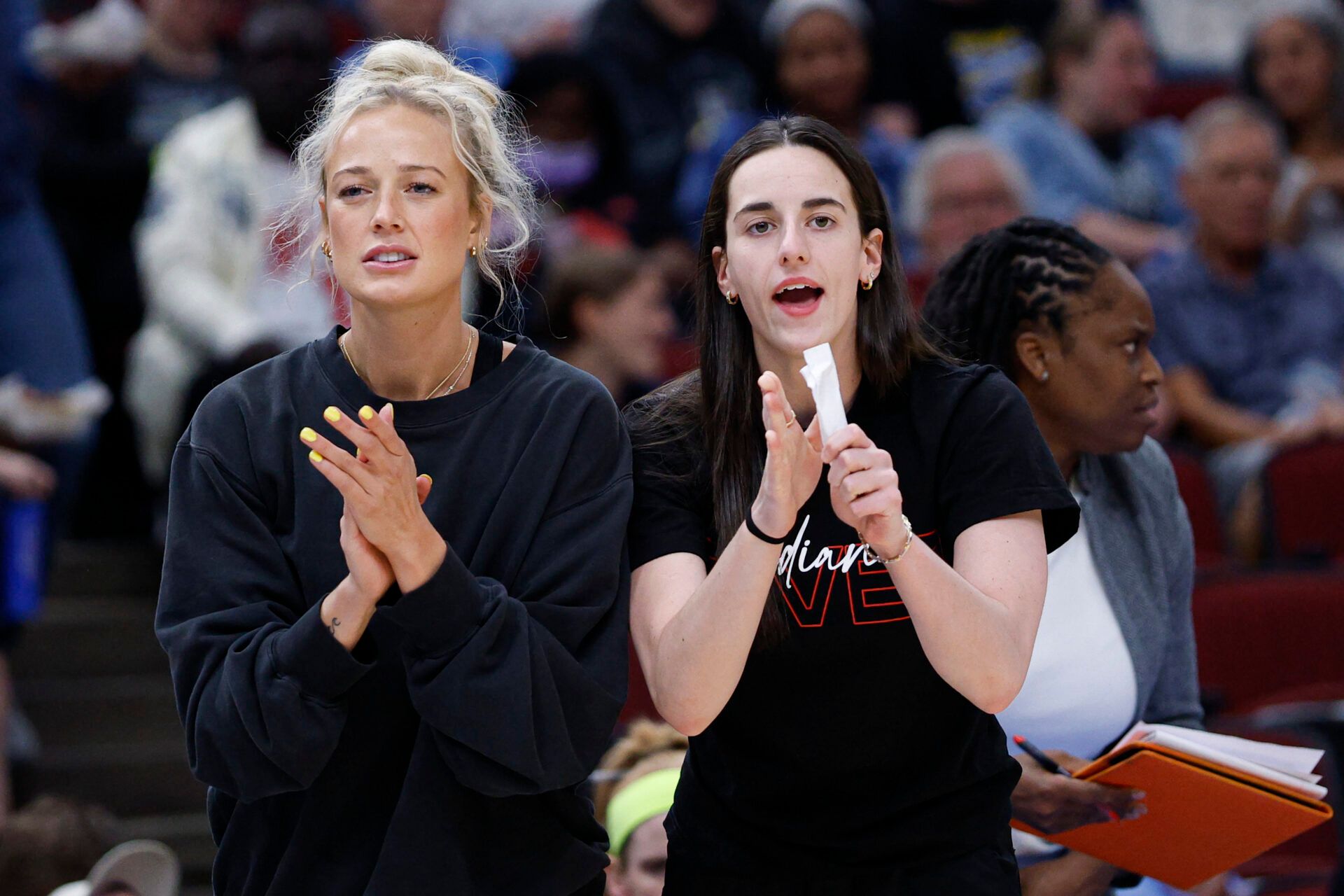In the rigid, hierarchical world of professional sports, loyalty is often measured in years served. A player who spends six seasons with one team becomes part of its fabric, its identity. Sophie Cunningham was the heart, soul, and fiery spirit of the Phoenix Mercury. And then, in a move that can only be described as a “declaration of war” on the WNBA’s old guard, she walked away from it all. Her destination: the Indiana Fever. Her mission: to stand shoulder-to-shoulder with a rookie, Caitlin Clark. This was not just a trade; it was a seismic cultural shift, a stunning “loyalty sacrifice” that has exposed the league’s deepest anxieties and redefined the very nature of veteran leadership.
To understand the magnitude of Cunningham’s decision, one must first understand its origins, which lie not on a basketball court, but on a dojo mat. A little-known fact about the WNBA’s most feared enforcer is that she earned a Taekwondo black belt at the tender age of six. This martial arts background instilled in her more than just discipline; it gave her a unique, almost preternatural ability to read body language, to recognize the difference between routine aggression and targeted, malicious intent. So when she watched the league’s brightest new star, Caitlin Clark, being subjected to a relentless campaign of physical abuse disguised as “rookie treatment,” she saw what others either missed or chose to ignore. She saw a pattern. She saw a threat.
The tipping point was a now-infamous incident during a game against the Connecticut Sun. After Clark was on the receiving end of yet another hard foul, Cunningham’s instincts took over. She became the first line of defense, her reaction immediate and fierce. The league, in a move that would prove to be a catastrophic miscalculation, fined her $900 for her actions. But that fine, intended as a punishment, became a catalyst. To the public, it looked less like a penalty and more like evidence of a “protection racket”—the league punishing the person defending its star while doing nothing to stop the initial aggression.

That $900 fine sparked a million-dollar firestorm. Sophie Cunningham was no longer just a gritty role player; she became a hero, a symbol of righteous defiance. Her social media presence exploded overnight. Her TikTok followers skyrocketed from 200,000 to over 1.2 million. The fine, meant to silence her, had inadvertently turned her into one of the most powerful and influential voices in the league. Her brand value surged, creating a new, undeniable asset that her former team, the Phoenix Mercury, could only watch happen from a distance. She had proven that in the modern media landscape, authentic loyalty is far more valuable than quiet compliance.
This is what makes her move to Indiana so revolutionary. It wasn’t just a player seeking a new contract; it was a veteran choosing a mission over a familiar home. She didn’t just join a new team; she joined a cause. Her decision to stand with Clark was a public indictment of the WNBA’s old model of leadership, which often involved a culture of intimidation where veterans would “test” rookies through harsh, physical play. Cunningham rejected this model entirely. She introduced a new paradigm: leadership through protection, mentorship, and unwavering, public support.
Her arrival in Indiana has transformed the team’s dynamic. She is the emotional anchor, the enforcer who allows Caitlin Clark the freedom to be a generational offensive talent, knowing she has a black belt watching her back. This “loyalty sacrifice” has not gone unnoticed by other veterans around the league. Cunningham has provided a new blueprint for aging stars: instead of fading into obscurity or fighting to maintain the old hierarchies, you can find a new, powerful role as a protector and mentor to the next generation. Her move has created a new, appealing destination for free agents, a place where a culture of support is valued over a culture of hazing.
In the end, Sophie Cunningham’s journey from Phoenix to Indiana is a story about more than just basketball. It’s a story about the power of conviction, the economics of authenticity, and the courage to defy a broken system. She saw a problem, and instead of complaining about it, she moved across the country to fix it. She bet on a rookie, on a new model of leadership, and on herself. The WNBA may have fined her $900 for defending Caitlin Clark, but in doing so, they inadvertently unleashed a force that is now reshaping the entire league. The enforcer has made her move. It’s checkmate.